NEWS
Seasonal air quality campaign in a high-traffic urban environment
An intensive sampling campaign was launched at a trafficked site in the center of Lisbon (Portugal) to assess seasonal variations in air quality, with a particular focus on microplastics generated from road tyre abrasion. Sampling equipment was installed near the rooftop of the Entrecampos air quality station, part of the national monitoring network, to collect airborne particles. This work is being carried out in collaboration with the Lisbon Regional Coordination and Development Commission (CCDR-LVT), which manages and evaluates air quality in the Lisbon & Tagus Valley (LVT) region. Measurements are being conducted during representative periods of each season to provide a comprehensive understanding of air quality variations throughout the year.
Summer Campaign
Samples were collected over 30 working days during a representative summer period. Data from this campaign provide a baseline understanding of air quality during the warmer months, which are characterised by high photochemical activity and secondary aerosol formation.
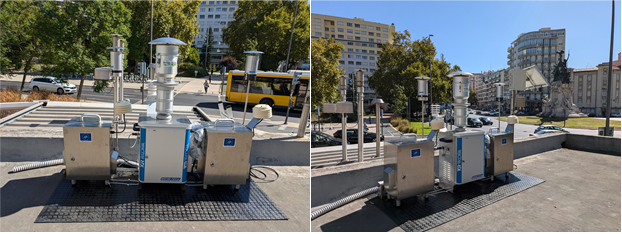
Autumn Campaign
The autumn campaign was conducted from 5th November 2024 to 10th December 2024. This period captured the dynamics of air quality during the cooler months, allowing an assessment of transitional weather patterns and their influence on airborne particles.
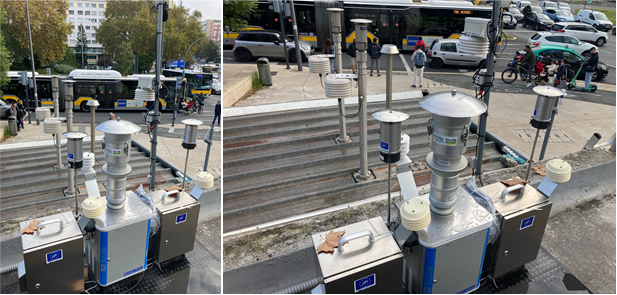
Winter Campaign
The winter sampling campaign took place from 10th January 2025 to 20th February 2025, covering a representative cold-weather period to assess the impact of meteorological conditions on air quality.
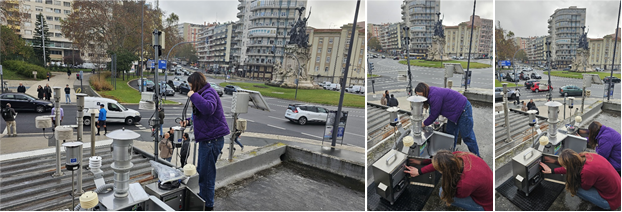
Spring Campaign
The final campaign was conducted from 2nd April to 20th May 2024, marking the final phase of the seasonal air quality assessment. This campaign captured air quality variations during the transition from colder to warmer months, a period influenced by increasing temperatures and changing atmospheric conditions. By combining this data with previous seasons, we are one step closer to conclude the seasonal difference in air quality study, focusing primarily on microplastics.
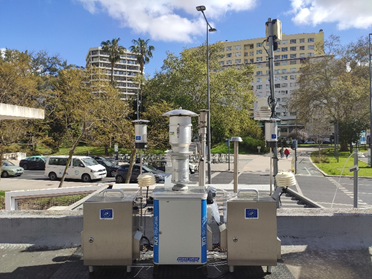
Air Quality Campaign in a Road Tunnel
A short-term sampling campaign was conducted at the Marquês Tunnel (Lisbon, Portugal) from 22nd to 30th October 2024. Both airborne particles and deposited road dust were collected inside the tunnel. Simultaneous sampling of airborne particles was carried out at an urban background site (Olivais air quality station, part of the national monitoring network), which is not directly exposed to traffic emissions. The obtained data will be used to estimate vehicular emission factors and develop composition profiles. This road tunnel study is ideal for gaining detailed insights into road traffic emissions, as it is a confined environment with negligible contributions from external pollution sources or regional and long-range transport.
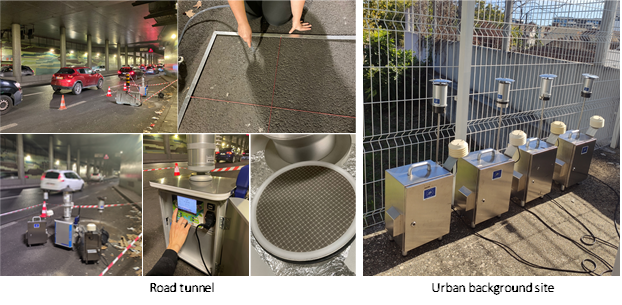
Road dust sampling tests
Road dust sediments from the pavement of two active traffic lanes in the parish of Parque of Nações (Lisbon, Portugal) were vacuumed. Samples were collected at Alameda dos Oceanos street (GALP) on 30 May and 6 June 2023 and at Alameda dos Oceanos street (Abelhinhas) on 31 May and 6 June 2023. Both traffic lanes have asphalt, which is the predominant type of pavement existing in Lisbon. The measurements were carried out to assess the effect of the traffic light location and the street sweeping and washing.
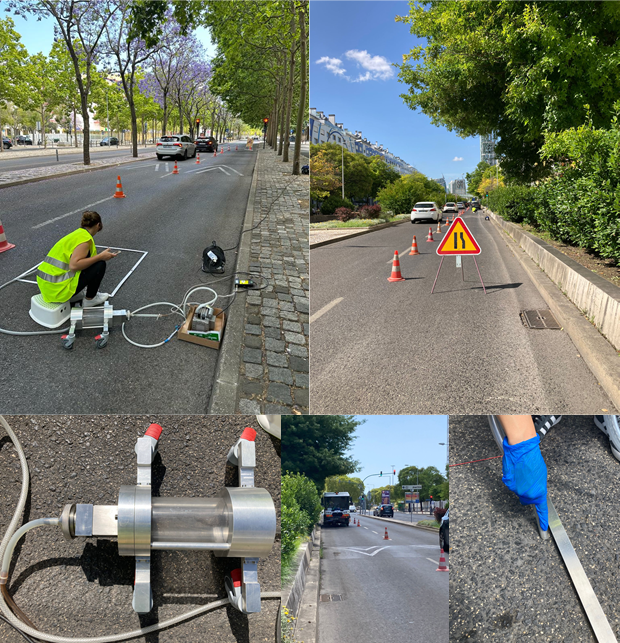
Road tunnel sampling tests
iMPact team carried out the sampling tests at the tunnel of Avenida João XXI (Lisbon, Portugal) on 5th April 2023, where airborne particles were collected using a high volume sampler. Samples were collected at different sampling times: 30, 60 and 90 min. These field tests were conducted to determine the sampling time for microplastics analysis.
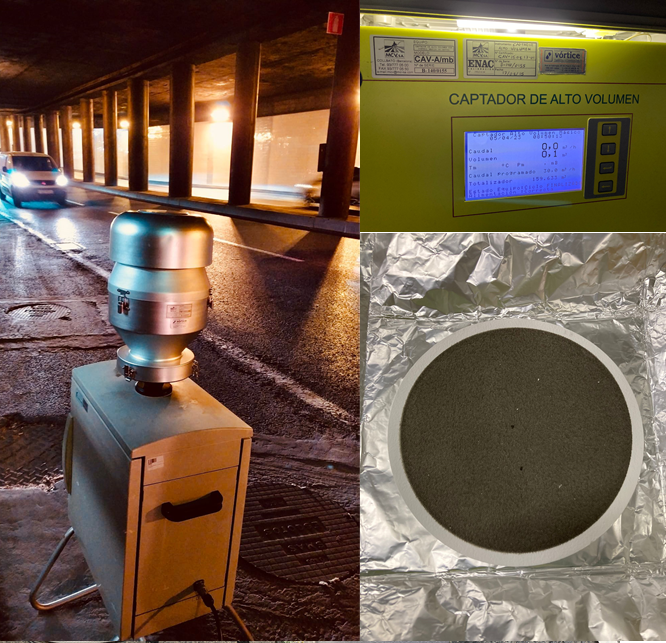

 Home
Home Project
Project Partners
Partners Advisory Board
Advisory Board Tasks
Tasks Progress
Progress Activities
Activities Publications
Publications Outreach
Outreach News
News Media
Media